#THIS is queer media history
Explore tagged Tumblr posts
Text
Guys can we please talk about how HUGE buck being bisexual is?
We have more people watching the show because a man was made bi and he hits NONE of the gay stereotypes.
People are doing it because this is so so so rare!!
People are doing it out of SPITE for the homophobic fans!!
People are watching the first season and are in SHOCK because oh?? There’s a lesbian black couple?? With a CHILD??? Oh there’s a gay 911 operator???
Guys it’s just
So many people are discovering this amazing beautiful show and the queer characters and now THEY get to see themselves as well!! THEY get to experience this joy with us!!
Because 911 is so much more than Evan Buckley. It’s so much more than Hen and Karen and Josh. It’s so much more because of them. It’s so much more because we have such a diverse and amazing cast. It’s so much more because they talk about topics of abuse, ptsd, family trauma (for SEVERAL characters), therapy for MEN, the grief of losing a partner or a parent or a child. It’s fully a found family show!!
And it’s so beautiful to see people hear about this show and watch it and feel seen. That Evan Buckley being bisexual opened a door for so many people that never knew it was ever there.
#THIS is what change looks like#THIS is queer media history#THIS is how you get a audience#because I’m seeing SO many people who are so supportive of buck#even if they don’t ship buddie!! or if they never in a million years thought buck was bi!!#they’re OPEN to it they are willing to have someone connect the points for them so they CAN understand!!#whatoh back at it again#going to start SOBBING again#911 abc#evan buckley
372 notes
·
View notes
Text
My wish and dream is to have a loaf of bread and a drink of water for me and my family to live on. What is your dream here on Tumblr? Donate here.
#free gaza#gaza strip#gaza#free palestine#artists on tumblr#queer#trans gender#history#food#fashion#animal#queer story#transgender#trans pride#art#artificial intelligence#pixel art#artist#social media#merch#txt#trump treason#trump trial#trump administration#americana#american riviera orchard#interview with the vampire#vampire#gaza genocide#the gaza strip
4K notes
·
View notes
Text
“Nico Di Angelo is a token gay! His coming out scene sucked!” babes I’m BEGGING you to remember 2013 gay characters were not allowed in children’s media.
Lemme say that again: In 2013, it was expected that gay characters would be censored in children’s mass media.
Remember Korra? How she and Asami had to settle for ambiguous handholding rather than a kiss? That was fully a year after House of Hades came out. Nickelodeon said No Gays, the Children™ can’t handle that. Too risky. And people said man that stinks, but that’s how these things go in 2014 America.
Gay marriage was literally still illegal in the vast majority of US states. As of October 8th, 2013 (House of Hades release date) Gay Marriage was only a thing in thirteen fucking states. California had only legalized it that year.
Gay people were still very much on the fringes of society. It was an acceptable political position on both sides of the aisle to be against the existence and equal rights of gay people.
Nico was legitimately a landmark character in queer representation. To my knowledge, there wasn’t before an openly gay main character in a bestselling ya/middle grade fantasy fiction series. It simply was not a thing. They didn’t exist. They weren’t allowed to exist.
I remember people crying. Finally. It was a watershed moment. Kids all across the world finally got someone who represented them. It was such a big fucking deal. And it was controversial!!! Not for the reasons it is today, but because people thought gay kids having representation was inappropriate.
Is Nico’s coming out a great scene? No, these days it leaves a lot to be desired. It’s not perfect by any stretch of the imagination and I’m sure Rick wishes he could change it. But the fact that’s the case is a wonderful reflection of how far we’ve come.
All of your gay heroes in children’s media have Nico Di Angelo to thank. It was important, and good. It deserves to be celebrated, even if we’ve progressed past it since.
#history lesson#rant post#heroes of olympus#nico di angelo#pjo hoo#pjo hoo toa#percy jackson#percy jackon and the olympians#house of hades#solangelo#gay rights#gay romance#lgbt representation#queer representation#queer rep in media#pjo#will solace#heros of olympus#pjo hoo toa tsats#pjo tsats#hoo#legend of korra#korrasami#avatar korra#asami x korra#nico x will
4K notes
·
View notes
Text

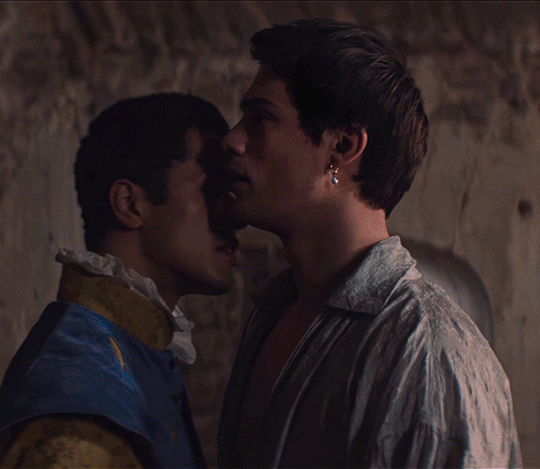
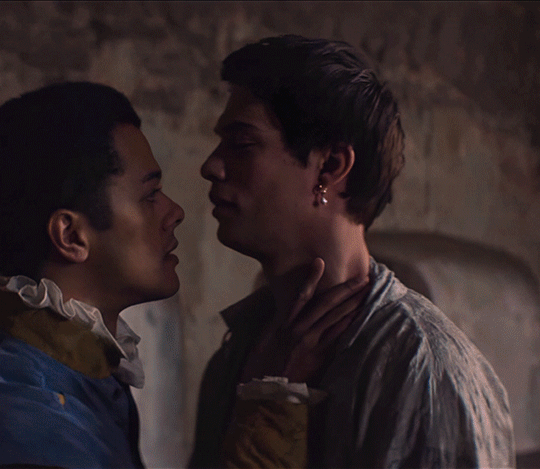
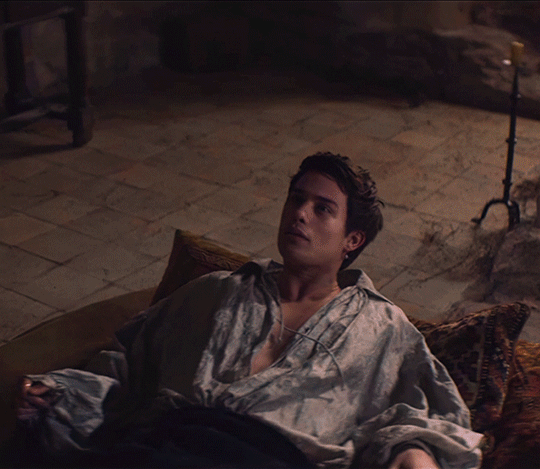
George Villiers & Peter Carr MARY & GEORGE (2024) · S1·EP4
#this shudve bn the hottest scene!#nicholas galitzine#mary and george#mary & george#dylan brady#george villiers#peter carr#perioddramaedit#queer#couple#kiss#affection#intimacy#desire#yearning#longing#period drama#queer media#queer history#jacobean#scotland#beautiful men
4K notes
·
View notes
Text
my problem really deeply is how shallow a tolerance younger people have for old queer media. like yes, it's dated and some of the politics don't hold water anymore, but to ignore older media simply based on that is to loose EVERYTHING we have bc we don't have a lot. just because queer themes caught up more recently doesn't mean we should rehash everything to fit into a more "presentable" format that is only considered modern bc of the puritanical blacklash of the last several years and sanitization of queer themes.
#media history#queer media#queer history#I'm thinking#the birdcage#priscilla queen of the desert#to wong foo thanks for everything julie newmar#paris is burning#velvet goldmine#party monster#hedwig and the angry inch#philadelphia 1993
2K notes
·
View notes
Text
In Defense of Shitty Queer Art
Queer art has a long history of being censored and sidelined. In 1895, Oscar Wilde’s novel The Picture of Dorian Gray was used as evidence in the author’s sodomy trials. From the 1930s to the 1960s, the American Hays Code prohibited depictions of queerness in film, defining it as “sex perversion.” In 2020, the book Steven Universe: End of an Era by Chris McDonnell confirmed that Rebecca Sugar’s insistence on including a sapphic wedding in the show is what triggered its cancellation by Cartoon Network. According to the American Library Association, of the top ten most challenged books in 2023, seven were targeted for their queer content. Across time, place, and medium, queer art has been ruthlessly targeted by censors and protesters, and at times it seems there might be no end in sight.
So why, then, are queer spaces so viciously critical of queer art?
Name any piece of moderately-well-known queer media, and you can find immense, vitriolic discourse surrounding it. Audiences debate whether queer media is good representation, bad representation, or whether it’s otherwise too problematic to engage with. Artists are picked apart under a microscope to make sure their morals are pure enough and their identities queer enough. Every minor fault—real or perceived—is compiled in discourse dossiers and spread around online. Lines are drawn, and callout posts are made against those who get too close to “problematic art.”
Modern examples abound, such as the TV show Steven Universe, the video game Dream Daddy, or the webcomic Boyfriends, but it’s far from a new phenomenon. In his book Hi Honey, I’m Homo!, queer pop culture analyst Matt Baume writes about an example from the 1970s, where the ABC sitcom titled Soap was protested by homophobes and queer audiences alike—before a single episode of the show ever aired. Audiences didn’t wait to actually watch the show before passing judgment and writing protest letters.
After so many years starved for positive representation, it’s understandable for queer audiences to crave depictions where we’re treated well. It’s exhausting to only ever see the same tired gay tropes and subtext, and queer audiences deserve more. Yet the way to more, better, varied representation is not to insist on perfection. The pursuit of perfection is poison in art, and it’s no different when that art happens to be queer.
When the pool of queer art is so limited, it feels horrible when a piece of queer art doesn’t live up to expectations. Even if the representation is technically good, it’s disappointing to get excited for a queer story only for that story to underwhelm and frustrate you.
But the world needs that disappointing art. It needs mediocre art. It even needs the bad art. The world needs to reach a point where queer artists can fearlessly make a mess, because if queer artists can only strive for perfection, the less art they can make. They may eventually produce a masterpiece, but a single masterpiece is still a drop in the bucket compared to the oceans of censorship. The only way to drown out bigotry and offensive stereotypes created by bigots is to allow queer artists the ability to experiment, learn through making mistakes, and represent their queer truth even if it clashes with someone else’s.
If queer artists aren’t allowed to make garbage, we can never make those masterpieces everyone craves. If queer artists are terrified at all times that their art will be targeted both by bigots and their own queer communities, queer art cannot thrive.
Let queer artists make shitty art. Let allies to queer people try their hand at representation, even if they miss the mark. Let queer art be messy, and let the artists screw up without fear of overblown retribution.
It’s the only way we’ll ever get more queer art.
_
Like this essay? Tip me on Ko-Fi, pledge to my Patreon, or commission an essay on the topic of your choice!
3K notes
·
View notes
Text
Mix Sahaphap gets to perform (and has the performance chops to perform) in a style that I’ve never seen any other male actor get to embody. Mix gets to unironically play the #strongfemalecharacter. The Beatrice, the Elizabeth Bennett, the Jo March. Strong-willed, emotional, kind-hearted.
Not only do the plot points line up, but Mix, more than any BL actor I’ve seen, fully leans into the embodiment of this archetype. In his roles, he rolls his eyes, pouts, banters flirtatiously, softens his posture and expression at small details. He doesn’t over-exaggerate and imposition other characters but his face also doesn’t hold back his character’s thoughts and judgments. And when the moments arrive, he lets all the hurt and anguish pour out in shatters of tears and visible heartbreak—the star-counting scene, anyone????—in a way that harkens to the operatic emotionality of well-done melodramas, soap-operas, and their contemporary Thai equivalent of Lakorn. It’s only that these have never been men’s roles in those.

It’s no surprise that one of Mix’s roles—Cupid’s Last Wish—is explicitly a gender body-swap, and Tian in A Tale of Thousand Stars is (albeit explicitly denied within the show) heavily connected to gender body-swapping. What Mix specializes in as an actor, and does exceptionally well, has been defined as feminine. To depict a kind of queer expression in this style is novel because it’s not camp, it’s not okama, it’s not a soft or femboy, it’s not a BL twink (Mix has been mostly excluded from the schoolyards and quads of the BL universe except for a role as a senior crush in Fish Upon the Sky). It’s too sincere and too adult for any of that.

In Moonlight Chicken we get to see, without the pretense of gendered mysticism, this performance style’s seduction, warmth, wit, and explosiveness within the framework of a general gay form of expression. It says that this kind of femininity might just be a gay thing. Not all gay men exhibit it, obviously—queer men aren’t a monolith. Still, it gives us something to consider about how we observe performance of queerness on screen, especially in front of an audience that puts so much more emphasis on ships, heat, and pairing chemistry to assess how well they perform a BL role. Could we look for other features to judge performance of queerness instead of how well they kiss?
Seme and uke roles would be the major performance style categories loyal BL fans assess actors with, yet even within the archetype his character’s fill within BL narratives, Mix’s performances differ from the typical uke depiction in BL because he really doesn’t perform them as passive. Rather, Mix’s characters and his portrayal of them are dynamic and demanding. It certainly fits certain stereotypes of ukes (Gilbert!) and their gay stereotype equivalent of bottoms as pillow princesses and brats. Mix’s characters, though, have more drive, agency, and compassion than that, and he plays them with all of those currents running underneath.

We certainly have openly gay writer/director Aof Noppharnach to thank for writing this kind of queer character for Mix to play in Tian and Wen. But for Mix’s specific commitment to the performance starting off with his (debut!?) role in ATOTS, we first have Earth to thank for believing in Mix’s ability and recommending him to portray the role of Tian, and then Aof’s acceptance despite his differing initial expectations for the character. Mix, Earth, and Aof have all been open about how Mix in his personal life and nature holds a lot of similarities to both his role as Tian in ATOTS and Wen in Moonlight Chicken. Some people might knock points off his performances because he’s like them. But his relationship to the characters, rather than dampening my enthusiasm for Mix’s performances, helps me appreciate his willingness to give an authentic performance in a style that hasn’t been encouraged on screens previously. It’s made more impactful that he chose to risk vulnerability to bring something personal that had previously been excluded from screens because of its gender deviance (and in broader society explicitly condemned). This doesn’t make a claim on Mix’s actual identity, but simply shows his willingness to understand and perform the expressions of his queer characters with an effort at empathy that many other actors would feel challenged to bring.
Some actors are chameleons, but some actors have a gift of a type within which they can explore depths and range that no one else can best. For me, that’s what Mix does in his work when directors and casting understands his talent. There’s a BTS video of Mix actually fainting during a scene while in Earth/Phupa’s embrace on the mountain that immediately brought to mind the wildly famous final scene in the film Camille where Greta Garbo as Marguerite dies in her lover’s arms.

For Mix, it was a serious incident due to regrettably extreme conditions and requiring the on-set paramedics, but these levels of theatrics, for me, are emblematic of what Mix is capable of as a performer, as well. After all, he had to faint in Phupa’s arms multiple times on purpose. It’s the kinds of Old Hollywood and heightened sentimental romance realms Mix takes his performances to! Then he can turn around and make it look easy to take that same character into grounded quips or dedicated everyday tasks. It only takes writers, directors, and audiences willing to see that men can feel this way and act this way. Mix has paved the way.

#mix sahaphap#earthmix#atots#moonlight chicken#cupid’s last wish#mlc#ossan’s love th#futs#fish upon the sky#ofts#Thai bl#queer history#queer performance#there’s a reason Mix can walk into the last five second of only friends and make such an impact#again I’m soglad to see more exploration of different queer embodiments in bls#but mix specifically changed my life#moonlight chicken was my second series after only friends#and I had just never seen a gay character in any media get to act like that with such earnestness#it was the first time I felt like I saw myself on screen#the jungle the series
827 notes
·
View notes
Text
It's so hilarious to me how in queer media that actually accurately represents queer people (adults) there's always some kind of murder or other unforgivable mistakes involved??? Like, yeah that's my favourite genre, but why is queer cinema always some kind of psychological thriller/horror, especially the old stuff. Give us a minute to BREATHE please. Someone always DIES. I can name so many examples on this I'm actually going to write a paper on it asap, because I just think it's both so funny and interesting but also disturbing.
#queer#media#cinema#queer media#lgbtq#mulholland drive#yellowjackets#hannibal#interview with the vampire#the talented mr ripley#the handmaiden#saltburn#kill your darlings#black swan#jennifers body#rope 1948#brokeback mountain#if we were villains#the picture of dorian gray#giovannis room#the illiad#the secret history#lydia tar#strangers on a train#sherlock holmes#bbc sherlock#I can go on like this forever#when does it stop#I have so many examples#and of course fight club but them boys aint ready to have that conversation yet
509 notes
·
View notes
Text
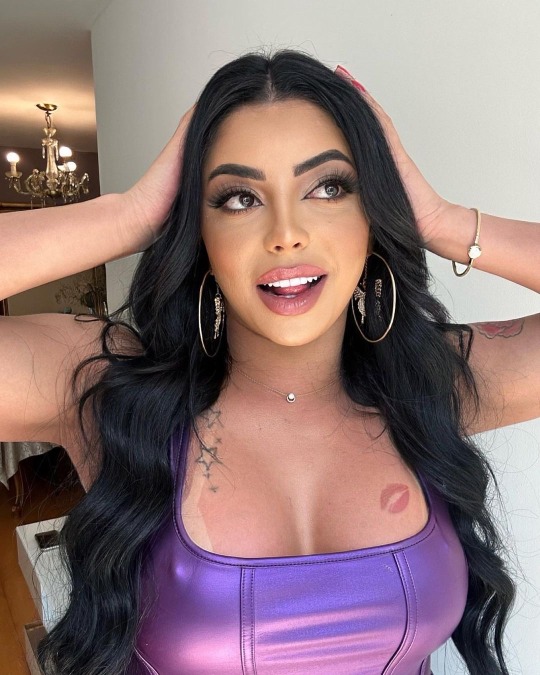
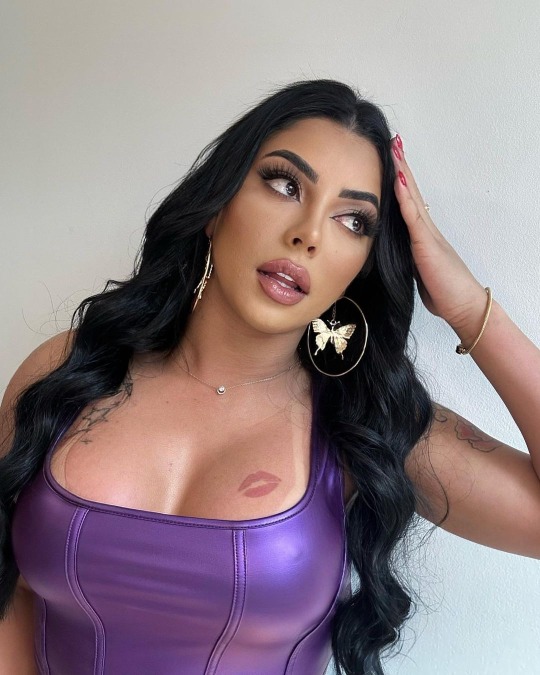
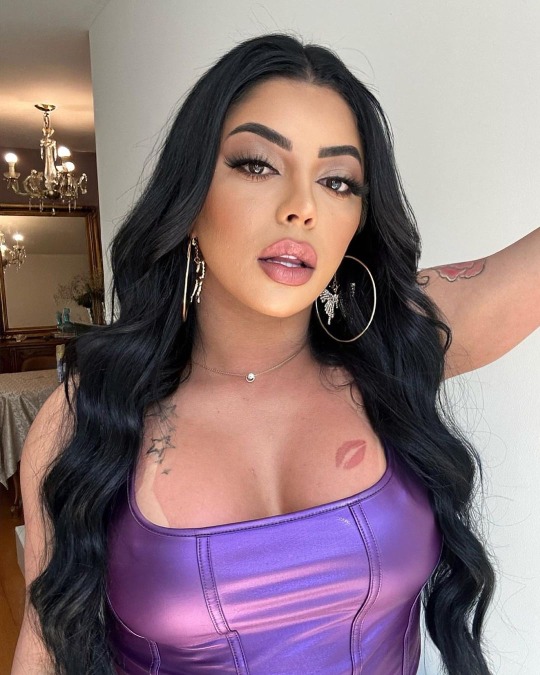
You've walked the long road and you've walked it well ❤️🥰
#queer#queer community#queer artist#queer pride#queerplatonic#queer history#queer women#queer romance#queer relationships#queer romantasy#queer uk#queer unity#queer positivity#queer platonic relationship#queer artists#queer dating#queer fantasy#queer girls#queer joy#queer kink#queer love#queer bd/sm#queer blog#queer nfst#queer news#queer magic#queer nightlife#queer media#queer sex#queer artwork
169 notes
·
View notes
Text
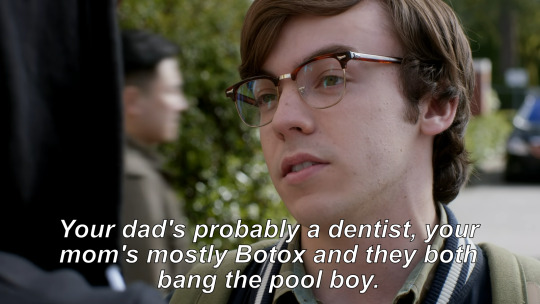

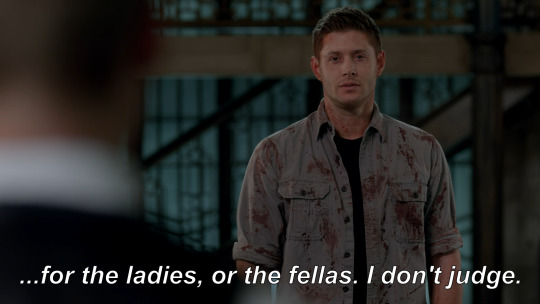
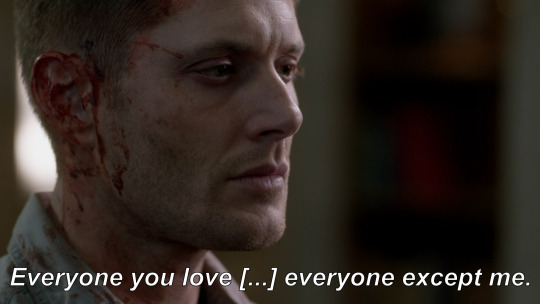
thee bisexuality episode 🩷💜💙
#fr this was so formatively important and I thank them for giving the clever ones of my generation some keys to the kingdom#of coding/cinematic languages we've always used - and ily meta writers who explicated this/revealed that connection to media history to me#they made Dean's character study of all time (until/much like spnwin) culminate in references to how he Knows Himself. it's so important#goddamn this mainstream trojan horse text can fit so much validation of queer ways of seeing and Just Being in it <333#supernatural#spn#dean winchester#castiel#destiel#spnedit#spn meta#parallels#10.22#dean is bi#spn is queer#anniversary posting#mine
163 notes
·
View notes
Text
Just saw a "feminist" video essay (by someone who just happens to only talk about feminism in relation to cishet white able bodied women) say that the Hays Code was good for women because it "prevented them from sexualizing women by preventing onscreen depictions of sex". Never before has a video said something that made me vocalize my disgust of it's takes, but this did it.
I didn't think I would have to say this but if you defend the Hays code you are horrible and not in any way progressive. And if you don't know what it is please look it up because it's probably the most important piece of history when it comes to all media analysis in the western world.
#196#my thougts#leftist#leftism#feminist#feminism#queer#media criticism#media literacy#media analysis#the internet#social commentary#discourse#proship#fuck antishippers#hays code#film history#cinema#white feminism
610 notes
·
View notes
Text
Don't get me wrong, I love all the representation of young queer teens, but I wish we had more representation of older queer men. Not love stories between kids with baby faces and stylish clothes and youthful features, love stories born between weathered eyes and crows feat and thinning hair. Men with gravelly voices and worn plaid shirts and stubble. I want to see older, established, gray-haired, and conventionally unattractive men live out their golden years together. The AIDS epidemic robbed us of seeing our futures and our pasts in our queer elders, and they deserve more. I want to see queer love between men and not just boys, proving to everyone that you can live and die as a free man
#queer#lgbt#lgbtq#lgbtq+#lgbt history#lgbtq community#lgbt representation#mlm#queer media#queer ships#queer characters#lgbtq representation#gay representation#gay#bisexual#bisexual representation#hannibal#nbc hannibal#hannibal lecter#will graham#hannibal nbc#hannigram#hannibal and will#house md#House#Greg House#James Wilson#hilson#the last of us#TLOU
247 notes
·
View notes
Text
What I love about brudick (the ship of Bruce Wayne/Dick Grayson, aka the original Batman and Robin) is that it is the original father of all toxic yaoi problematic parings in a way.
There was literally a book written about it. (Seduction of the Innocent). There were political hearings.
There were people literally trying to censor batman comics and stop them from being published.
But not because of the age gap elements, etc.
Because they were convinced that Batman and Robin's relationship in the comics was so compelling, the comics were turning your sons gay.
#brudick#media literacy#media analysis#fandom wank#batman#dc comics#censorship#queer history#homophobia
628 notes
·
View notes
Text

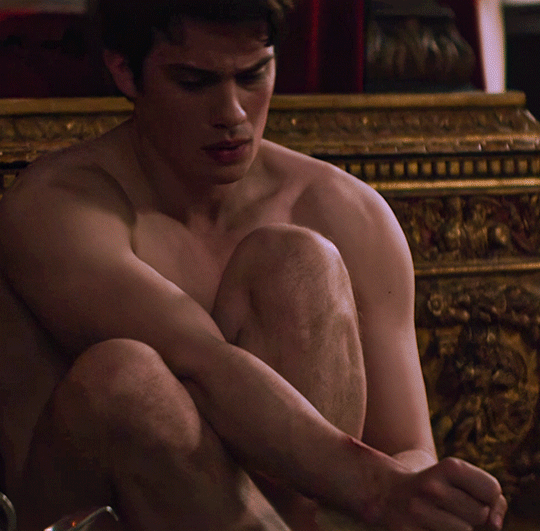
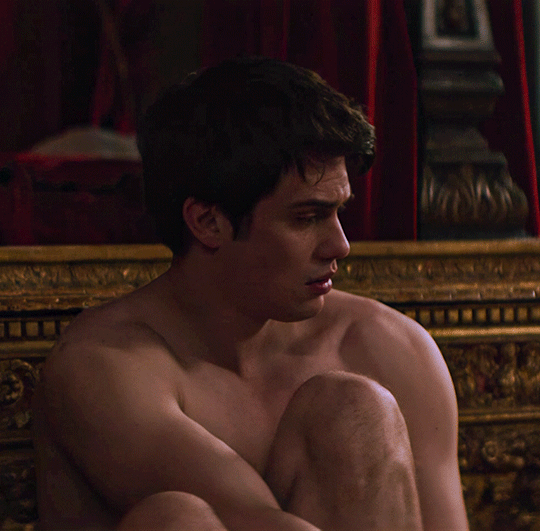
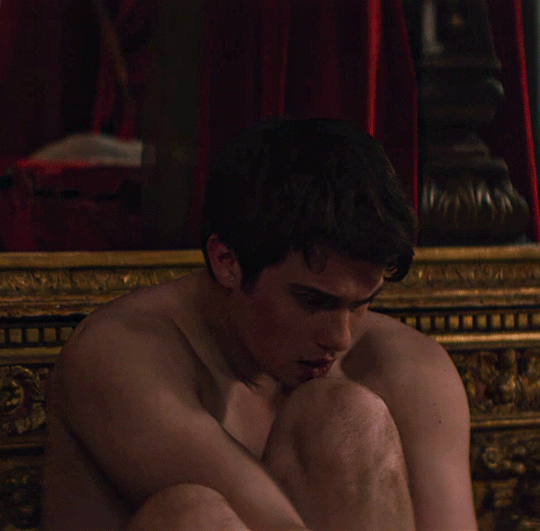
NICHOLAS GALITZINE as George Villiers MARY & GEORGE (2024) · S1·EP4
#nicholas galitzine#mary and george#mary & george#george villiers#perioddramaedit#queer#period drama#queer media#queer history#bisexual#queer characters#bi characters#jacobean#scotland#beautiful men
2K notes
·
View notes
Text
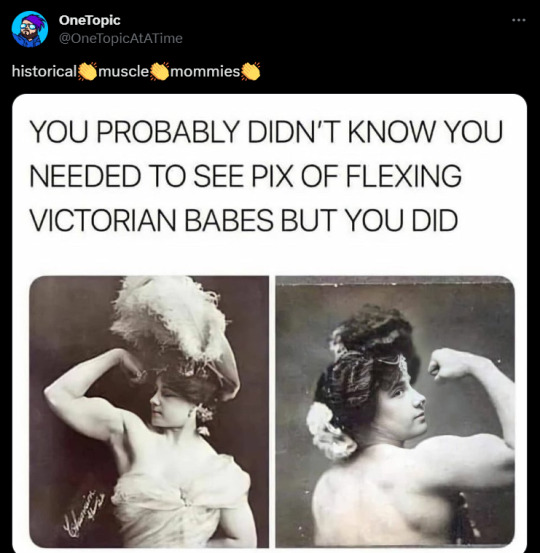
#history#one topic#one topic at a time#the click#oz media#wonderstruckguy#photography#lgbtq#lgbtqia#lgbt#lgbtq+#queer#trans rights
861 notes
·
View notes
Text
Listen I could spend forever writing an essay on why Rocky Horror Picture Show works so well but I think it comes down to the movie just being unapologetically horny and queer. It’s a film that says it’s ok to let go of everything dragging you down, it’s ok to be monstrous and strange in all the ways normal society just can’t understand. You should go and be the person you are because you just might end up really enjoying it.
And above all that you can be desirable. You can be sexy and free and fucked up with everyone else who’s just like you.
Why be normal when you can be extraordinary?
#rocky horror picture show#rhps#frank n furter#rocky horror#queer media#musical theatre#queer history#The fact that it came out in the 70s too#Like how brutally personal that mustve been for queer youths#I watched it literally last night btw#It’s been taking up all my brain space#Tim curry
478 notes
·
View notes